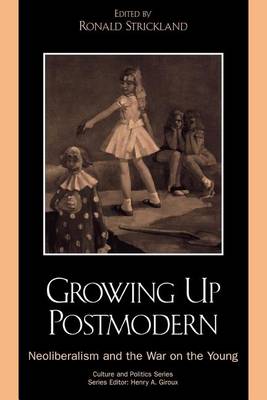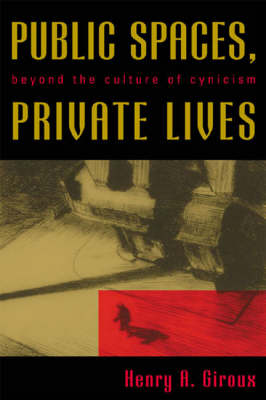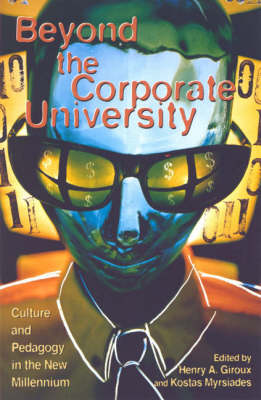Culture and Politics
3 total works
Growing Up Postmodern
by Jennifer Drake, Henry A. Giroux, Margaret Henderson, and Angela E Hubler
Published 1 January 2002
This collection takes its inspiration from Paul Goodman's Growing Up Absurd, a landmark critique of American culture at the end of the 1950s. Goodman called for a revival of social investment in urban planning, public welfare, workplace democracy, free speech, racial harmony, sexual freedom, popular culture, and education to produce a society that could inspire young people, and an adult society worth joining. In postmodernity, Goodman's enlightenment-era vision of social progress has been judged obsolete. For many postmodern critics, subjectivity is formed and expressed not through social investment, but through consumption; the freedom to consume has replaced political empowerment. But the power to consume is distributed very unevenly, and even for the affluent it never fulfills the desire produced by the advertising industry. The contributors to this volume focus on adverse social conditions that confront young people in postmodernity, such as the relentless pressure to consume, social dis-investment in education, harsh responses to youth crime, and the continuing climate of intolerance that falls heavily on the young. In essays on education, youth crime, counseling, protest movements, fiction, identity-formation and popular culture, the contributors look for moments of resistance to the subsumption of youth culture under the logic of global capitalism.
Public Spaces, Private Lives argues for a new language of engaged hope, political action, and democratic public participation. In an era when Americans regard politicians and government cynically, this book challenges the assumption that politics is dead-and shows why and how citizens must claim a revitalized role in American public and democratic institutions. Prominent cultural critic Henry Giroux describes an America today in which many citizens cannot envision an alternative to market-driven values. He explains why this is so and why so many people offer so little resistance to a concept of citizenship that does not extend beyond the lure of consumerism. As democracy is increasingly corrupted by the values of the market and an unbridled individualism, compassion and critical judgment give way to harsh, retrograde public policies like zero tolerance in schools and courts-and to media spectacles like Survivor that link masculinity to violence. These tendencies-in our media and in our society- spawn an increasingly urgent challenge of reawakening America's democratic values and revitalizing politics as a crucial form of public engagement. Giroux finds the key to effective social change in the realms of civic education, public policy, and cultural politics. He stresses forms of schooling and public pedadogy in which critical thinking and learning take a central position in the classroom and in the public sphere. We need new and reinvigorated models of educated hope in order to re-engage active public citizenship. Giroux makes a provocative and compelling case for profound but achievable changes that will move us beyond the current impasse of democracy.
A decade of budgetary, policy, and ideological contention has left American universities under the yoke of narrow-minded management models. As corporate culture increasingly invades educational and other public sectors, we as a nation have lost a clear vision of the public good and the necessary components of a vital democracy. Prominent scholars in this book seek to redress these trends. They move boldly beyond critique to show how and why the critical functions of a democratically informed civic education (not merely professional training) must become the core of the university's mission. They show why higher education must address what it means to relate knowledge to public life, and social responsibility to the demands of critical citizenship. Moreover, they show why democratic forms of education and various elements of a critical pedagogy are vital not only to individual students, but also to our economy and our democratic institutions and future leadership. They also suggest how we can move beyond the stagnation of current debates to more fully embrace the democratic possibilities of public education.


